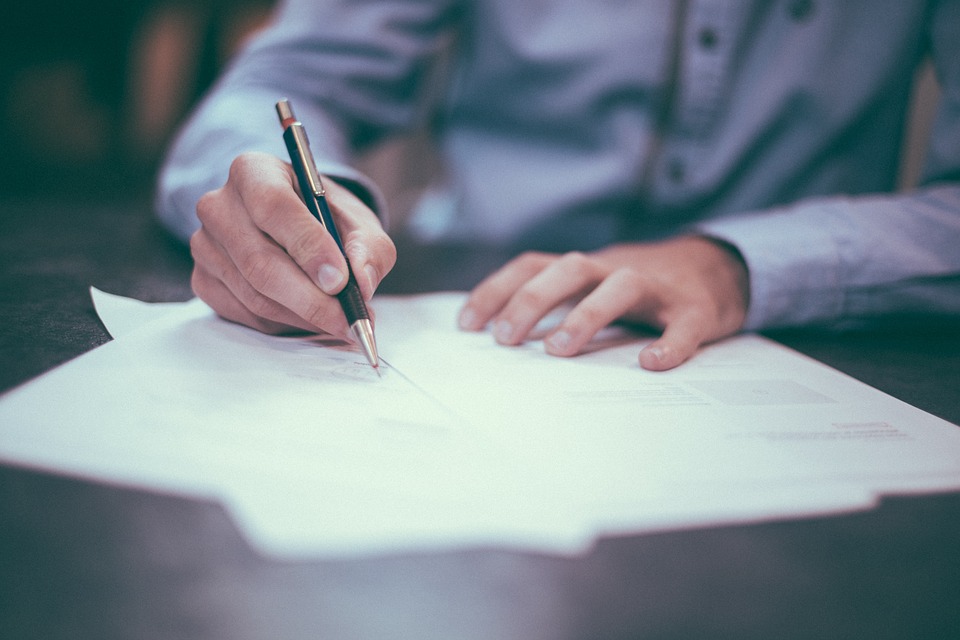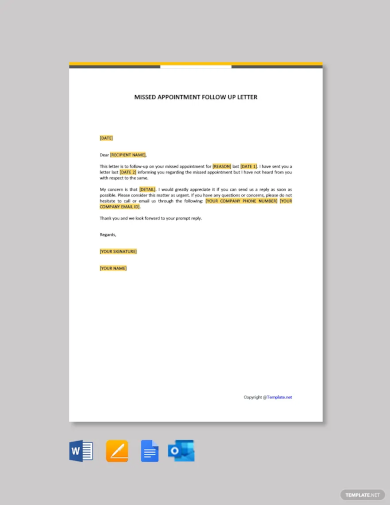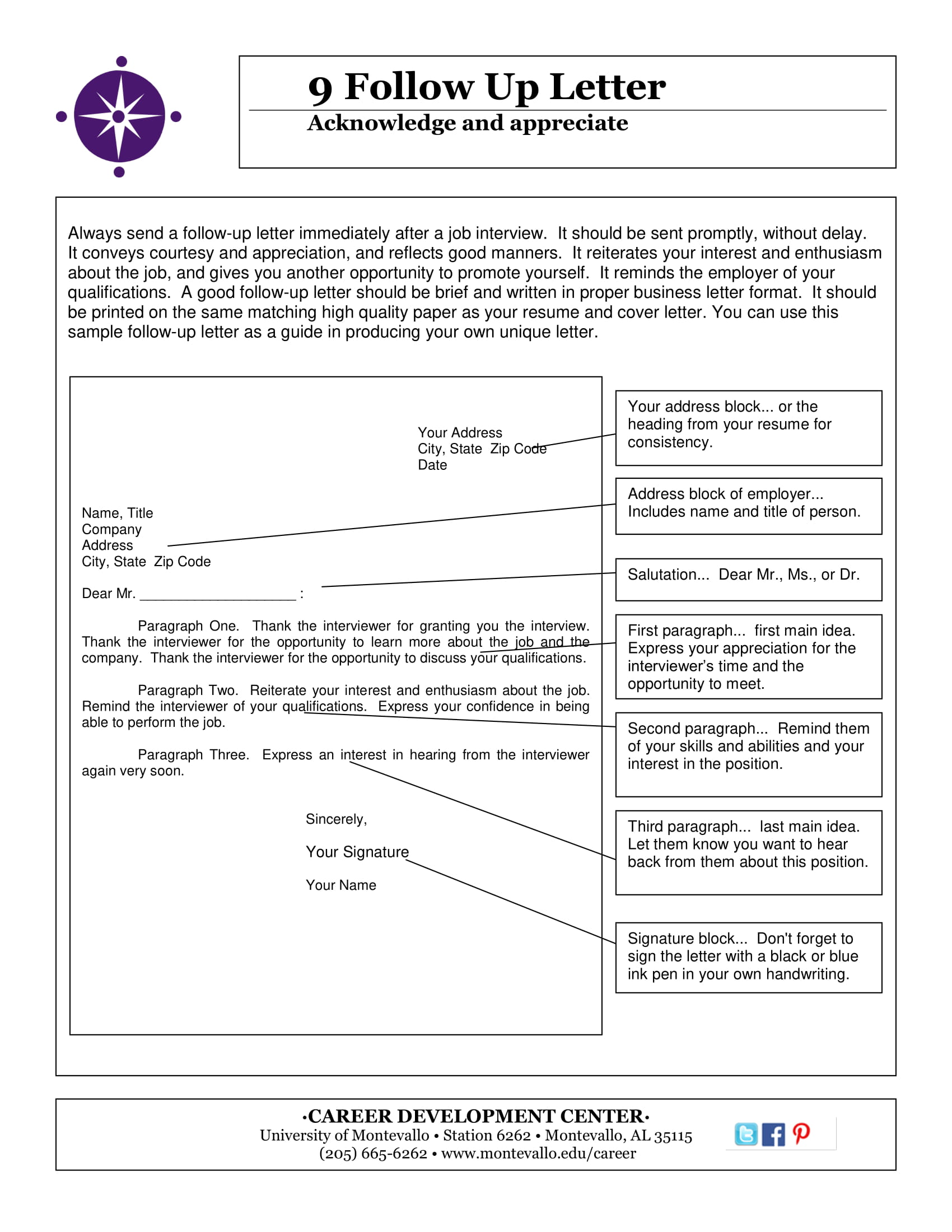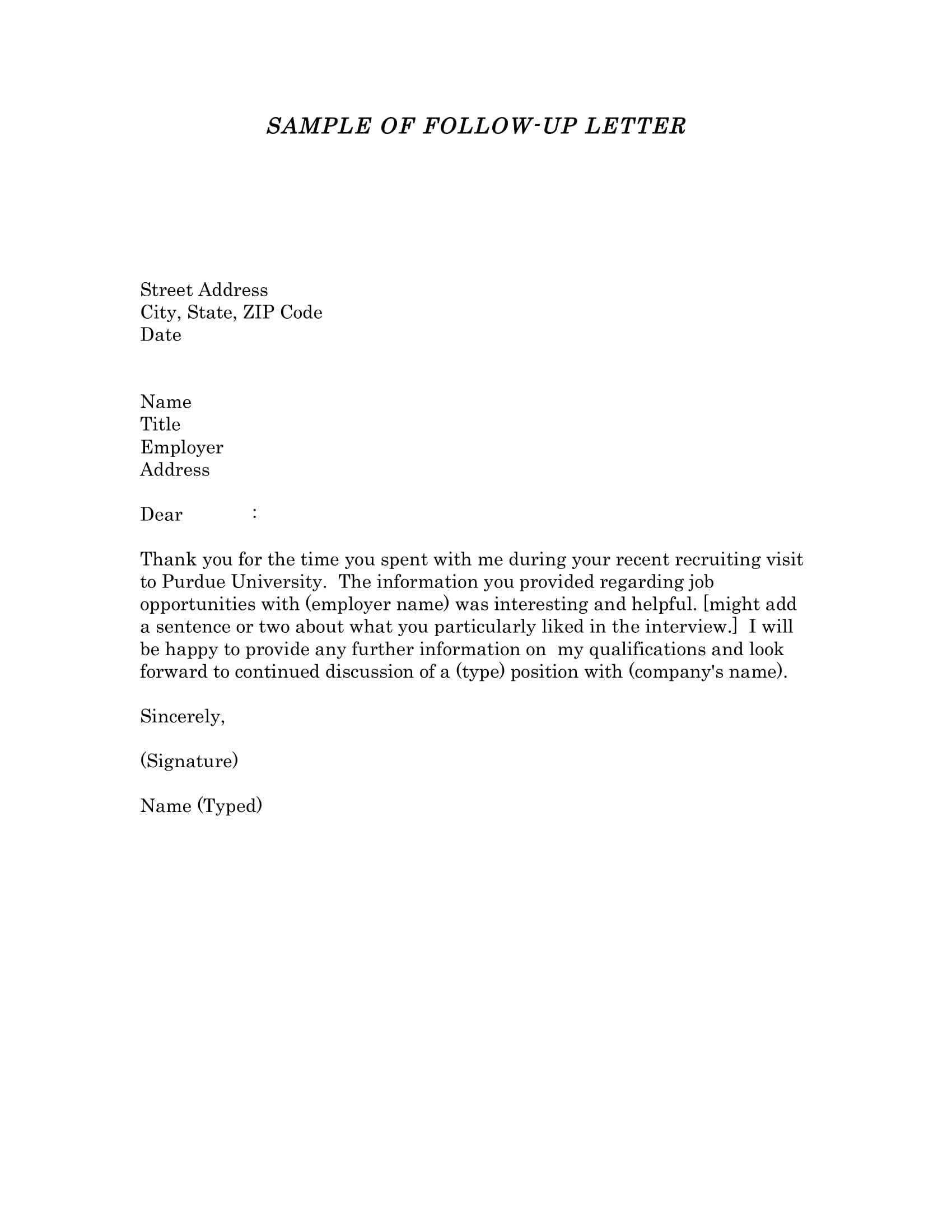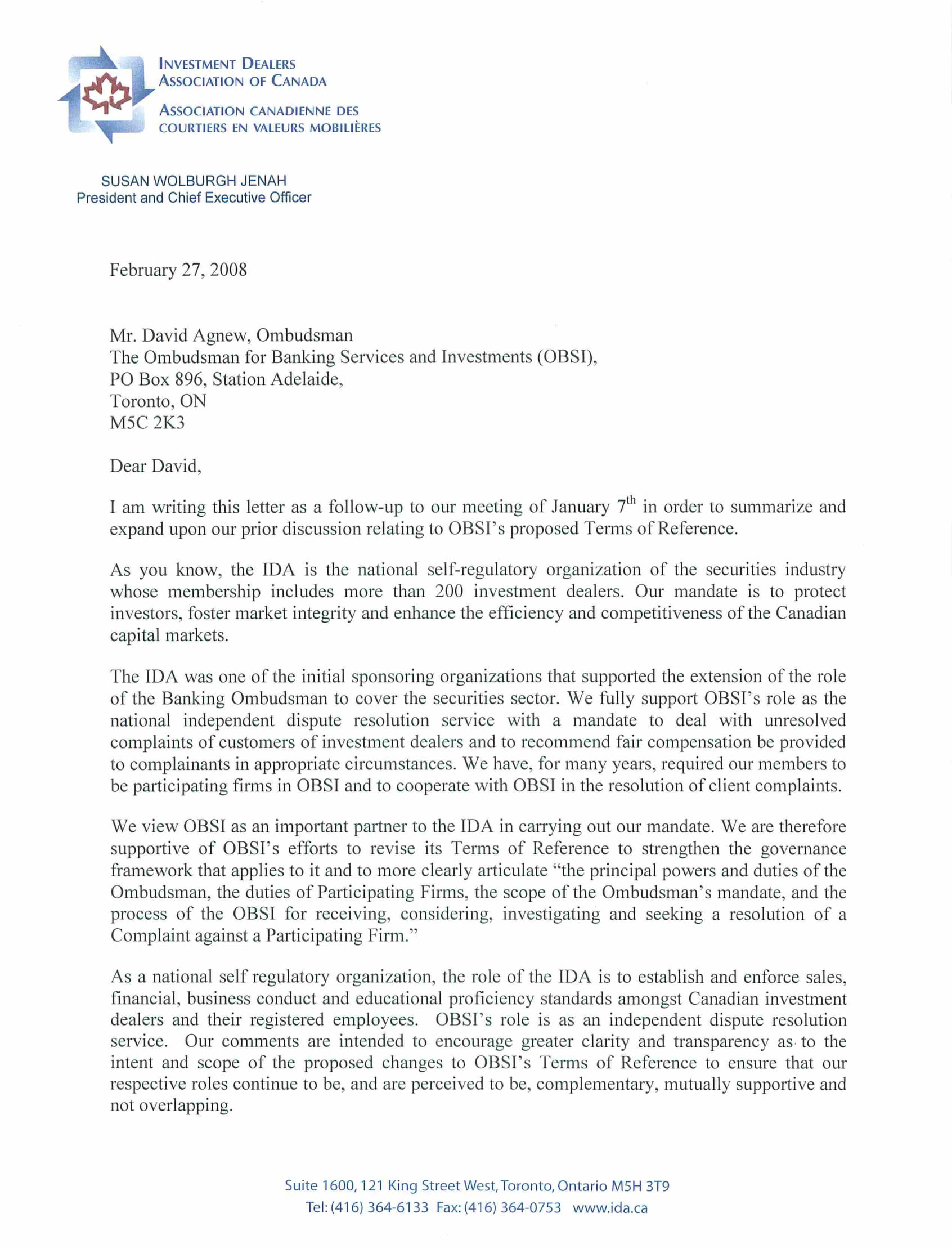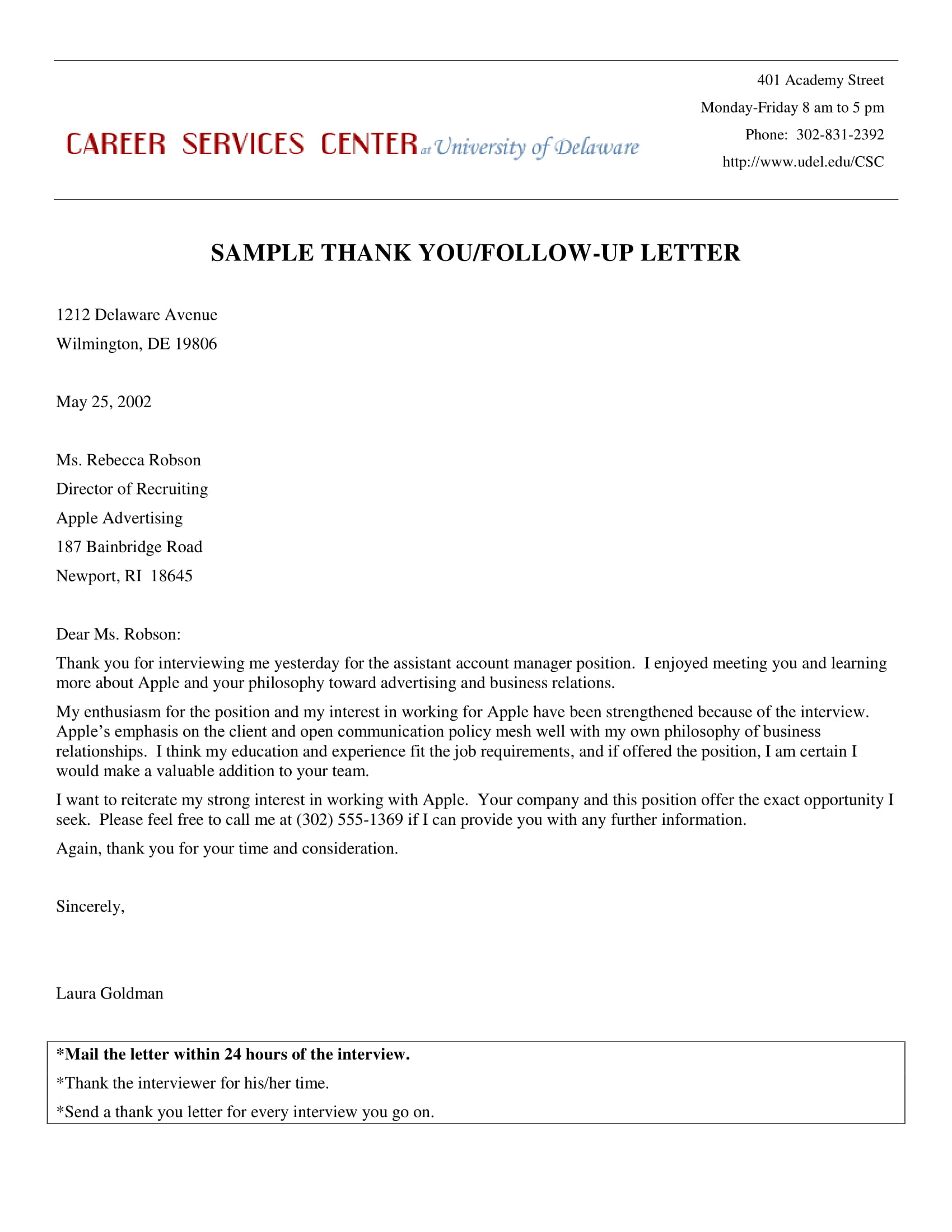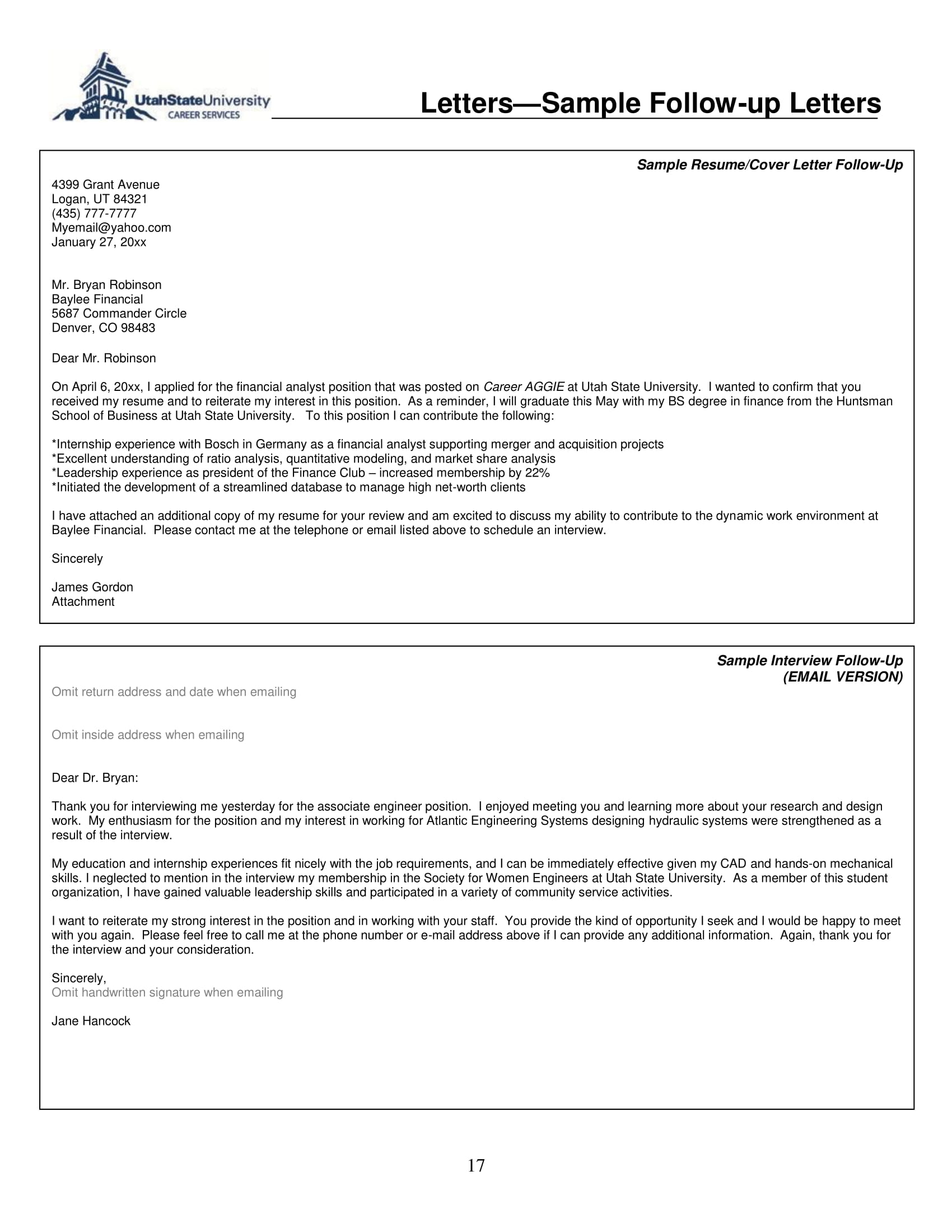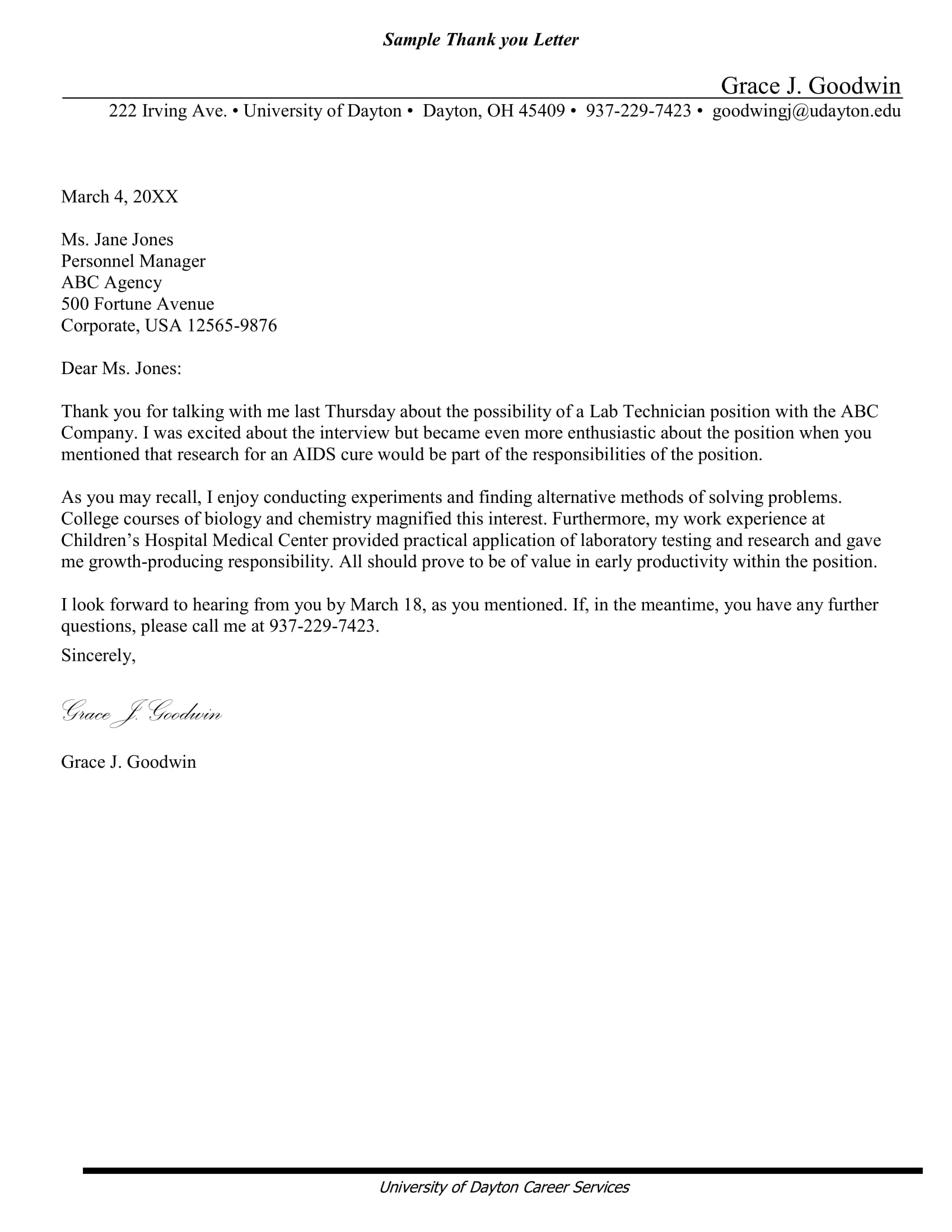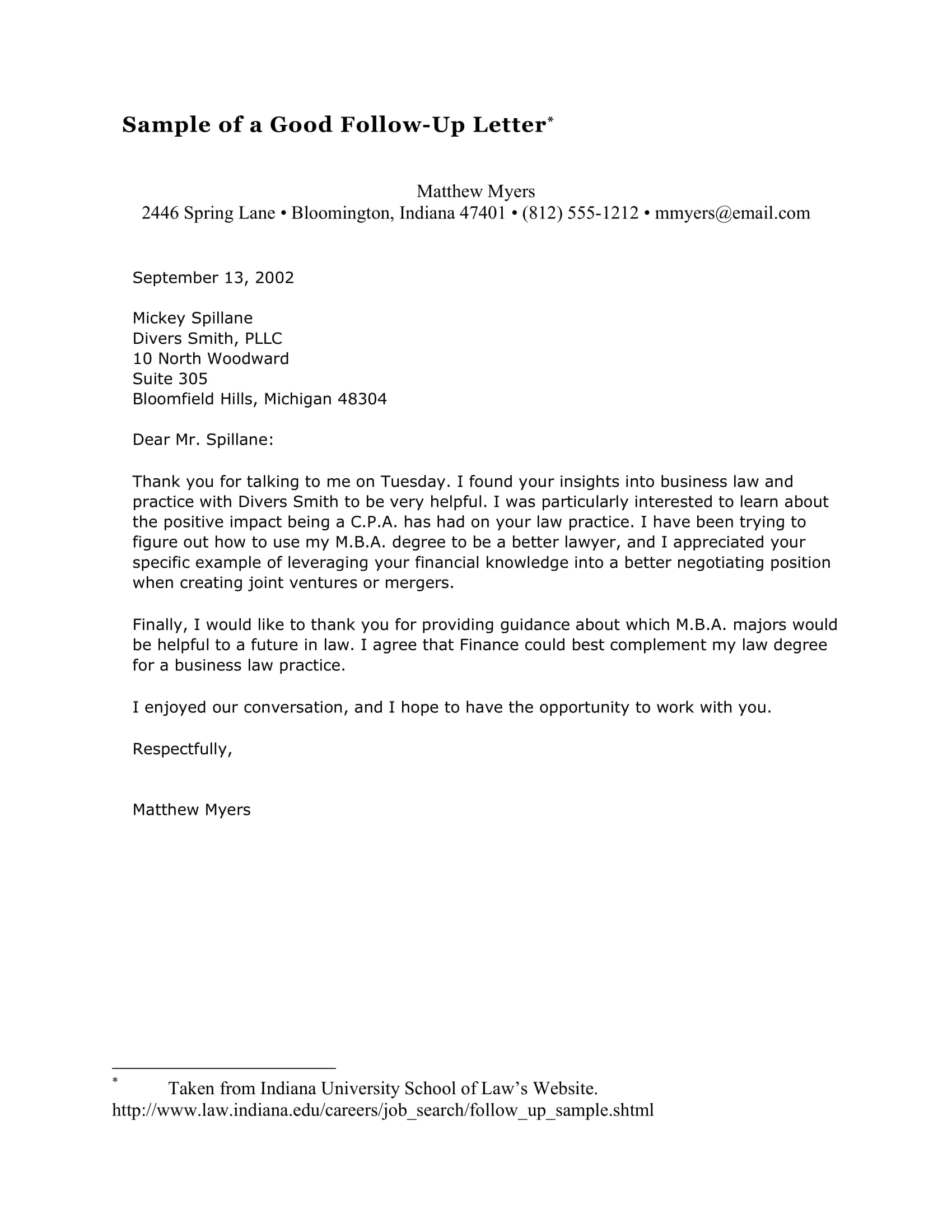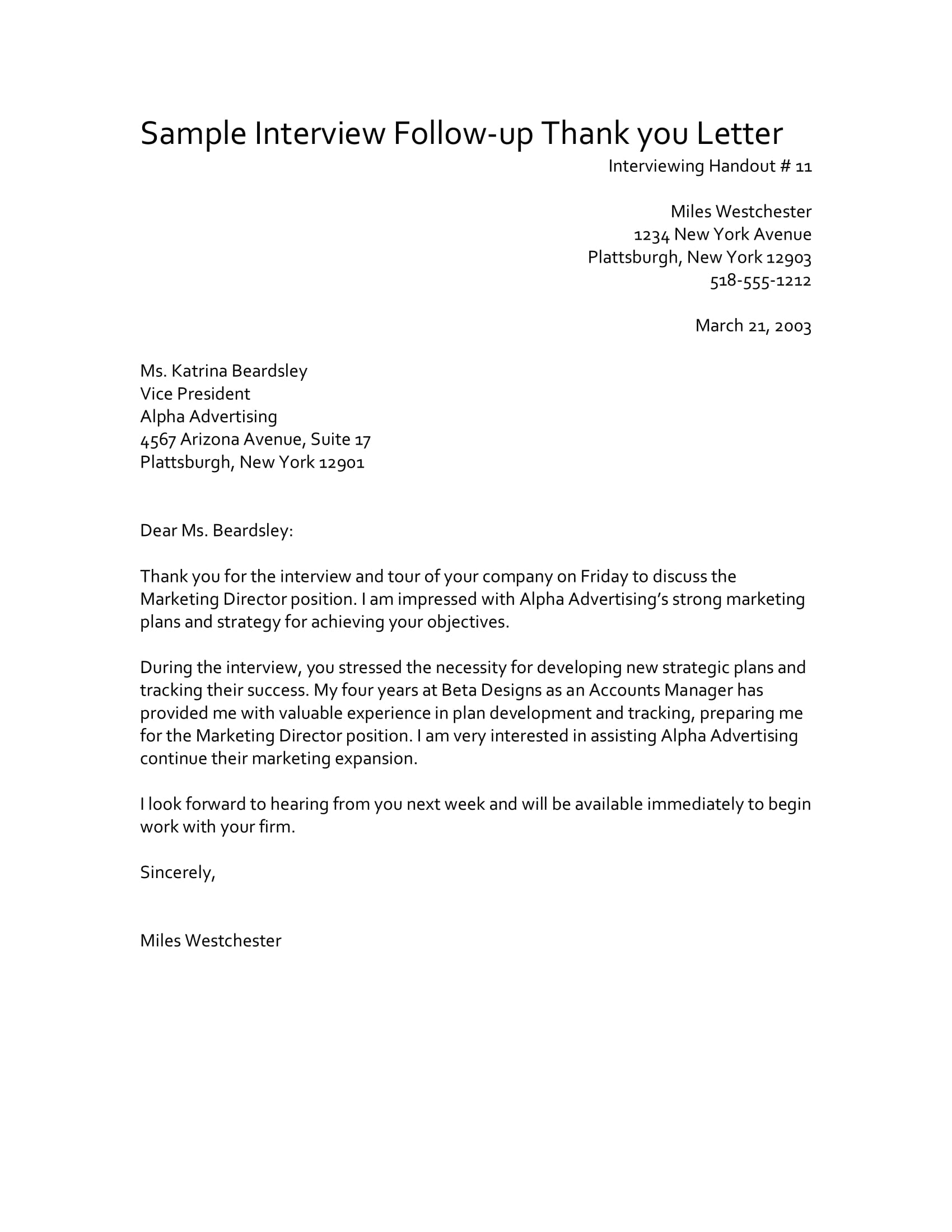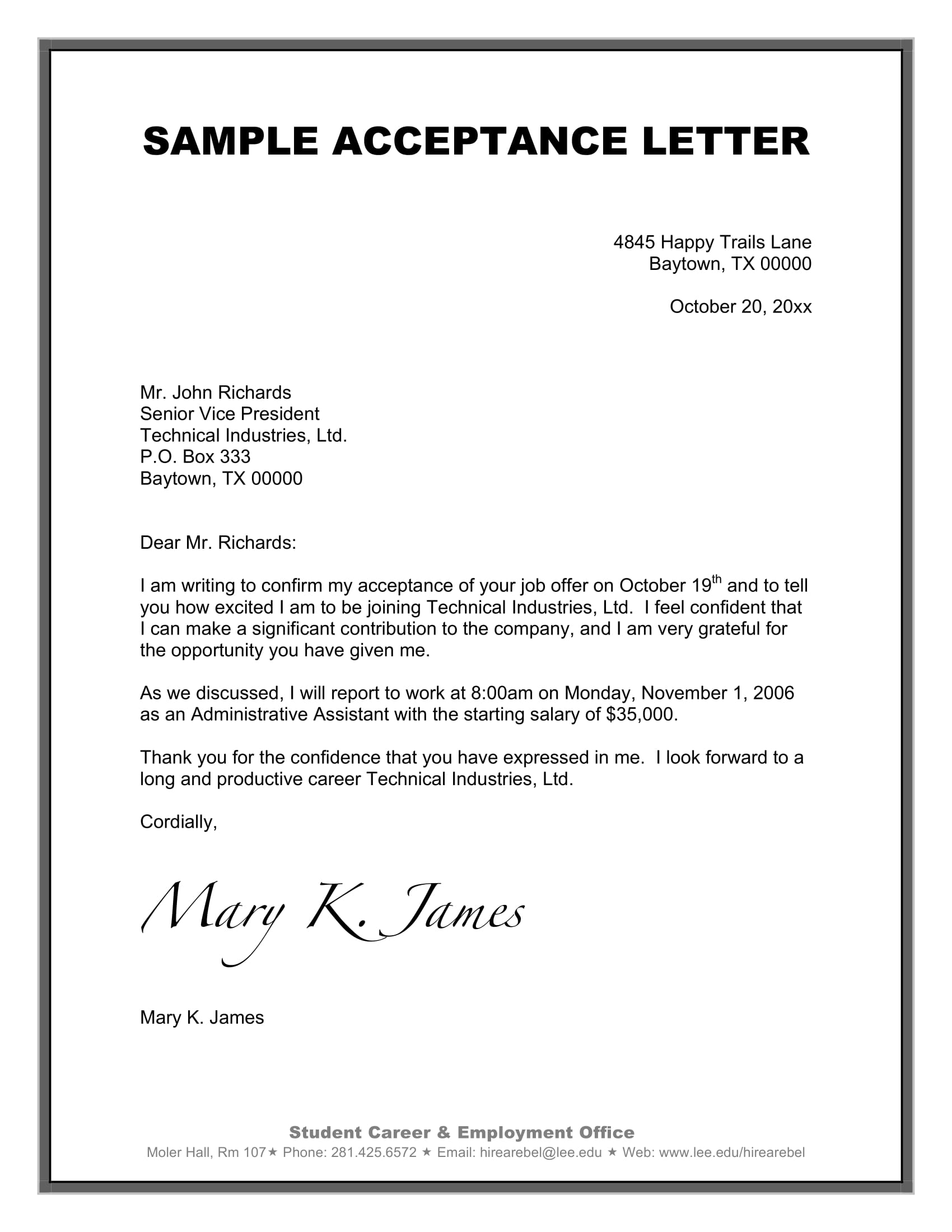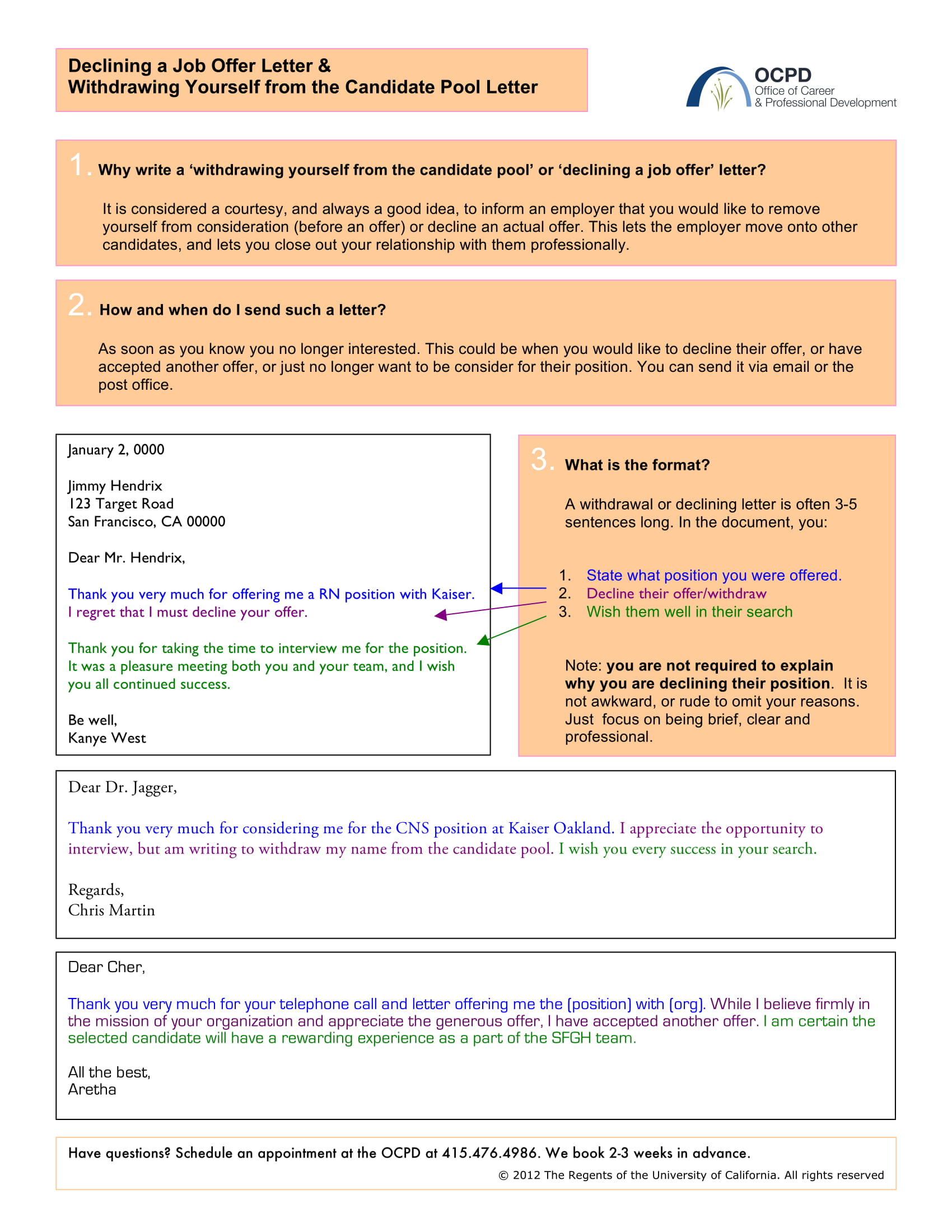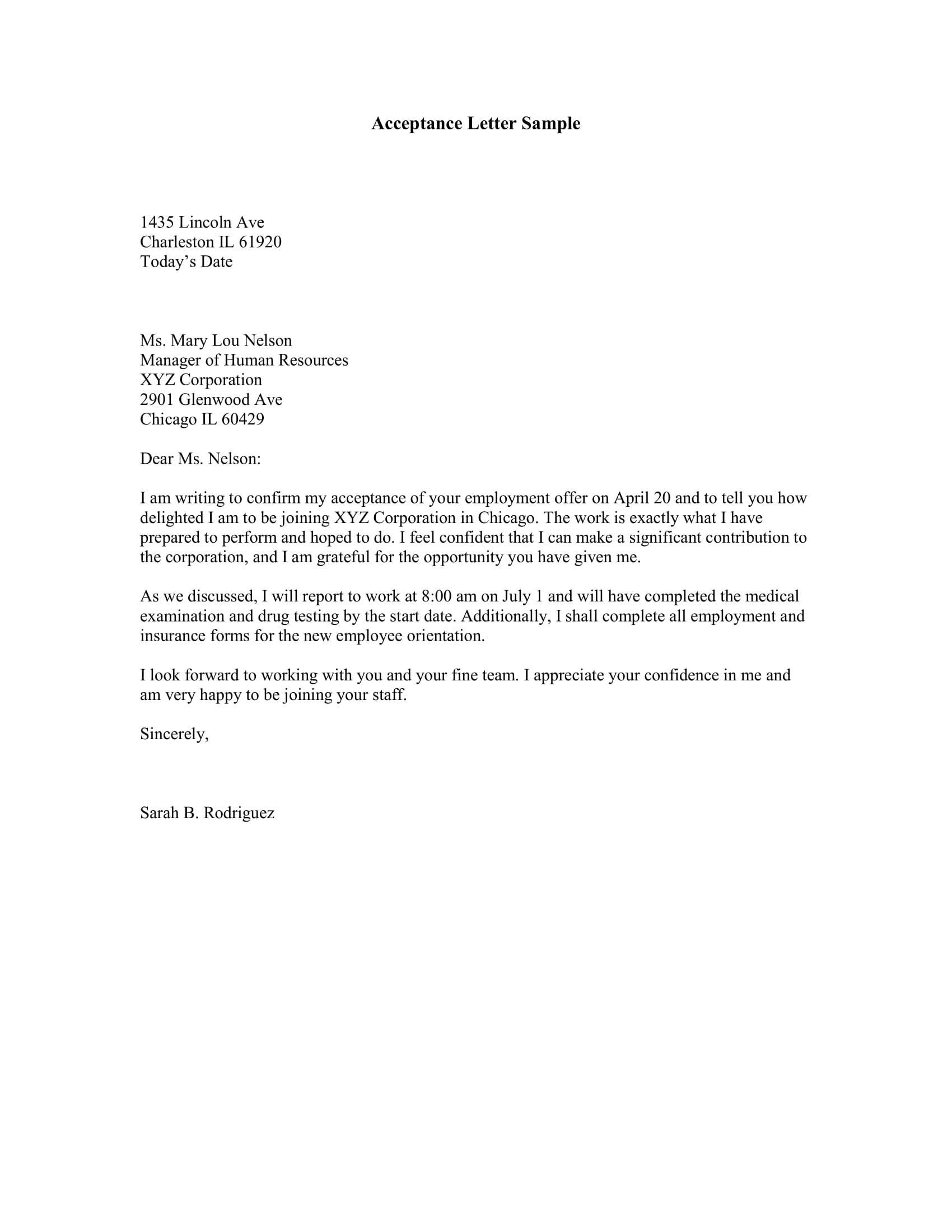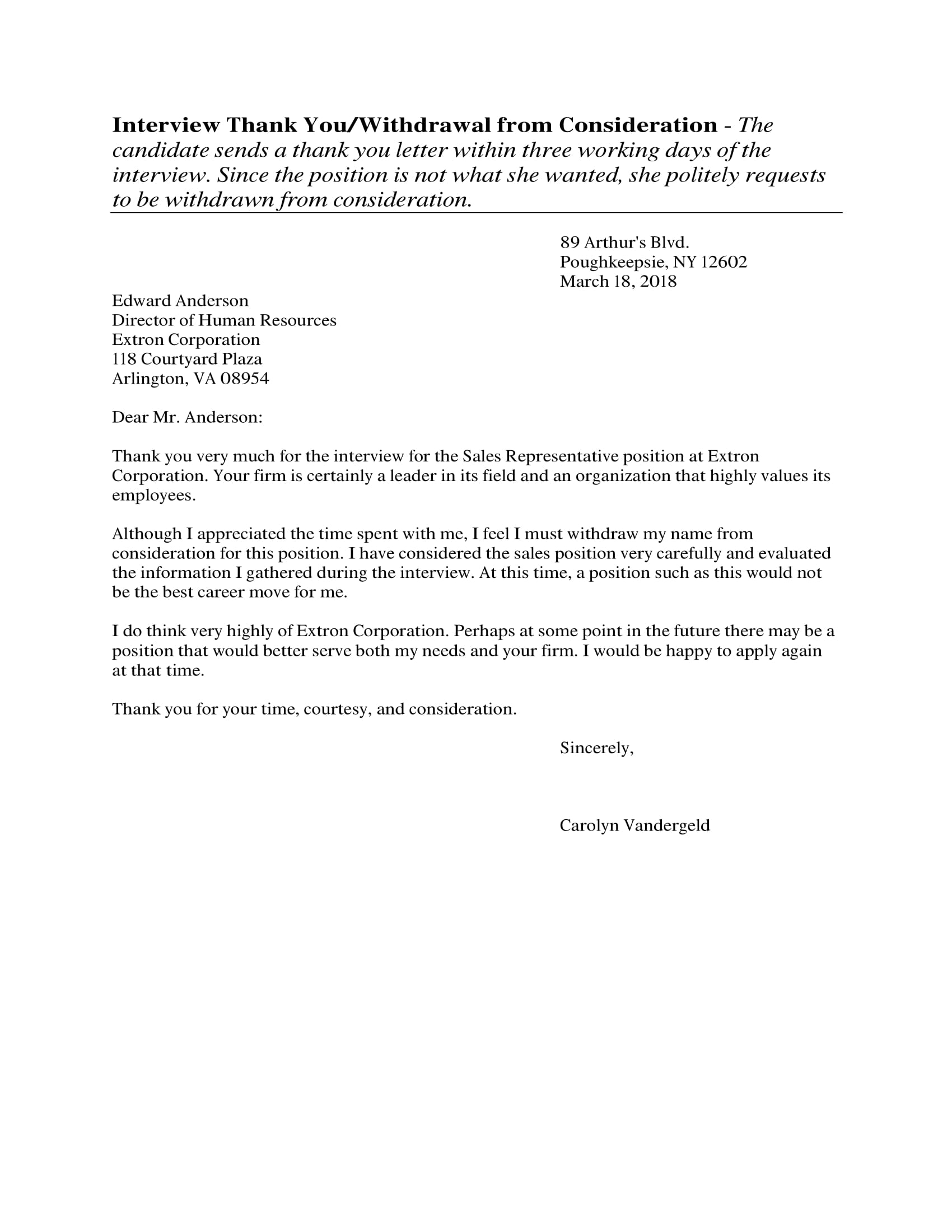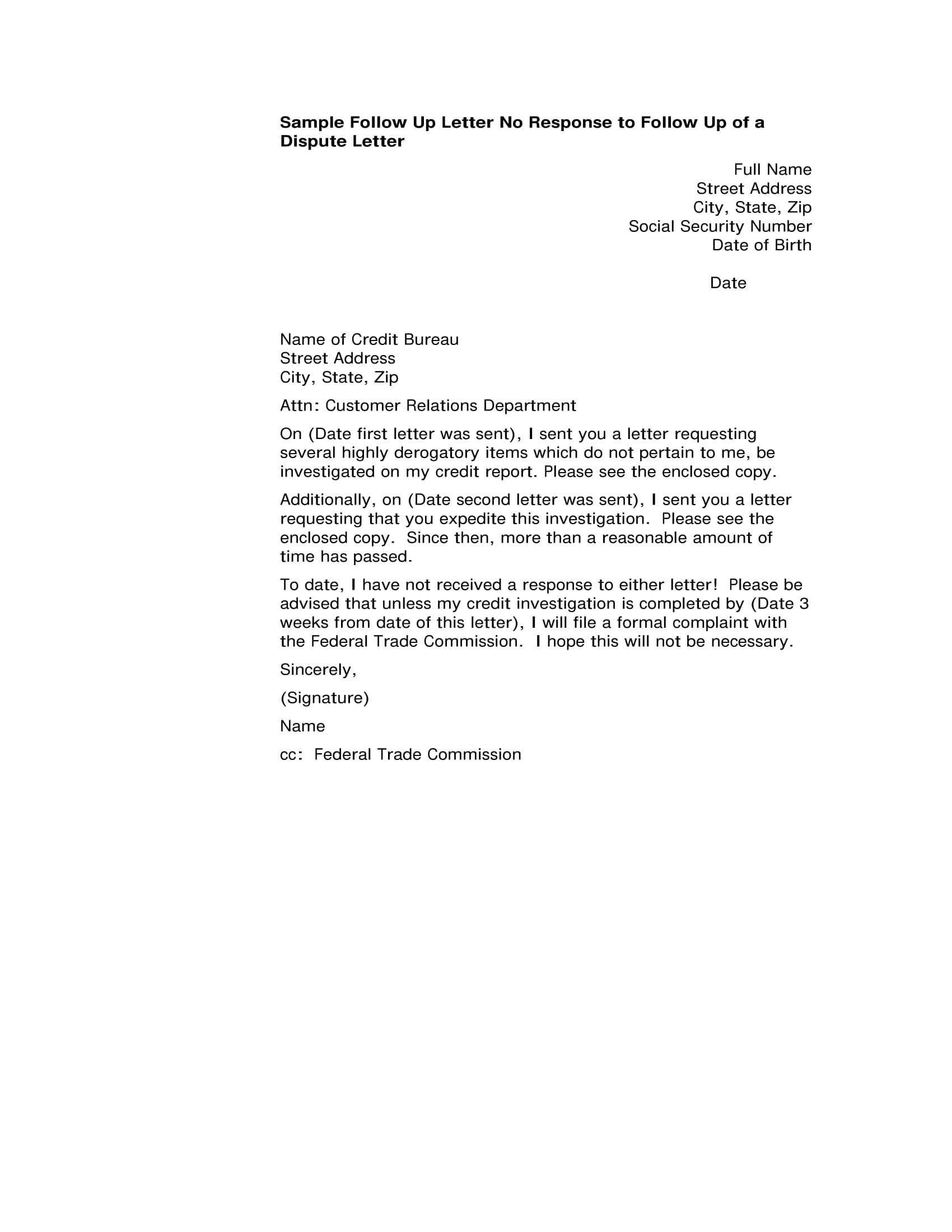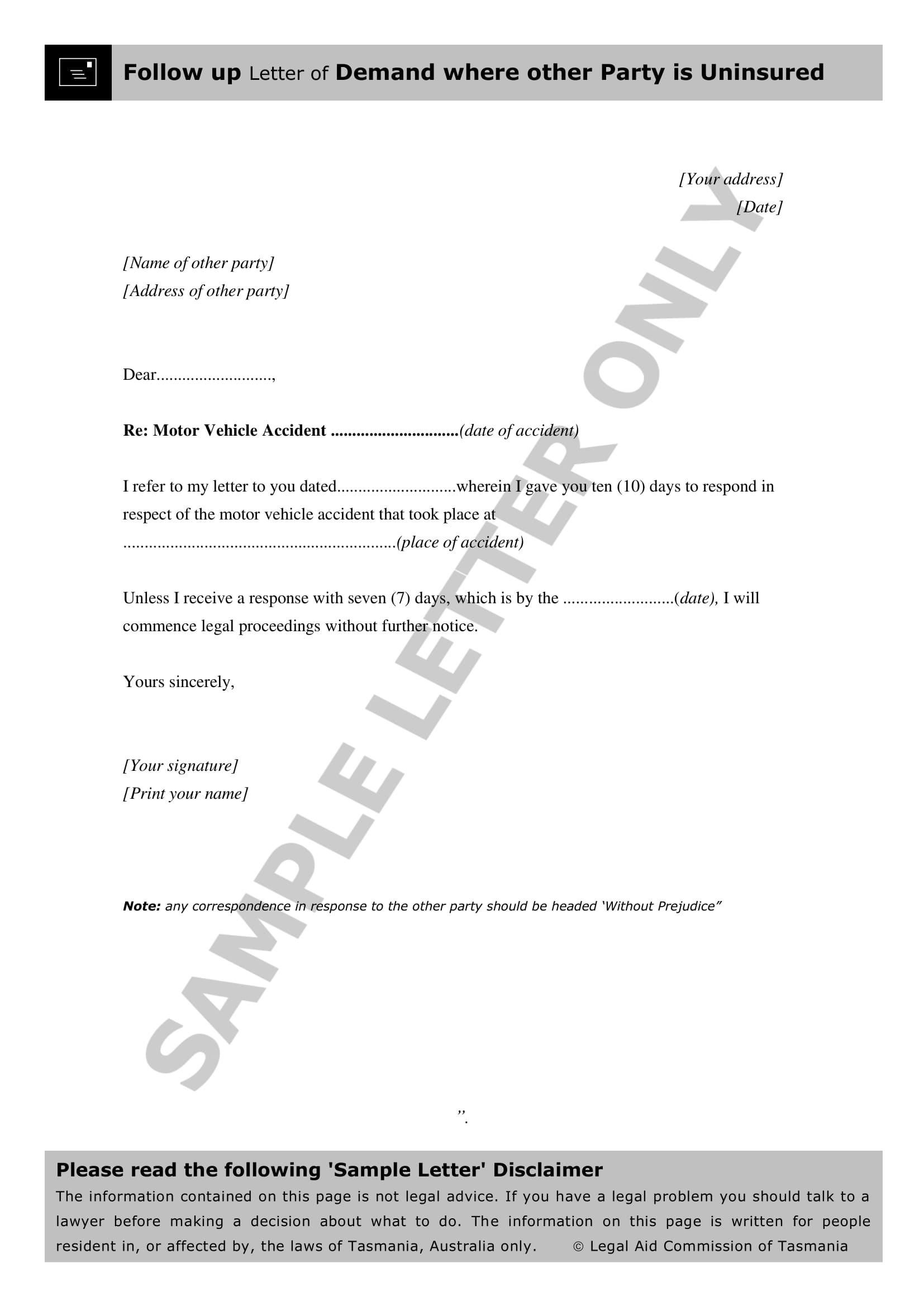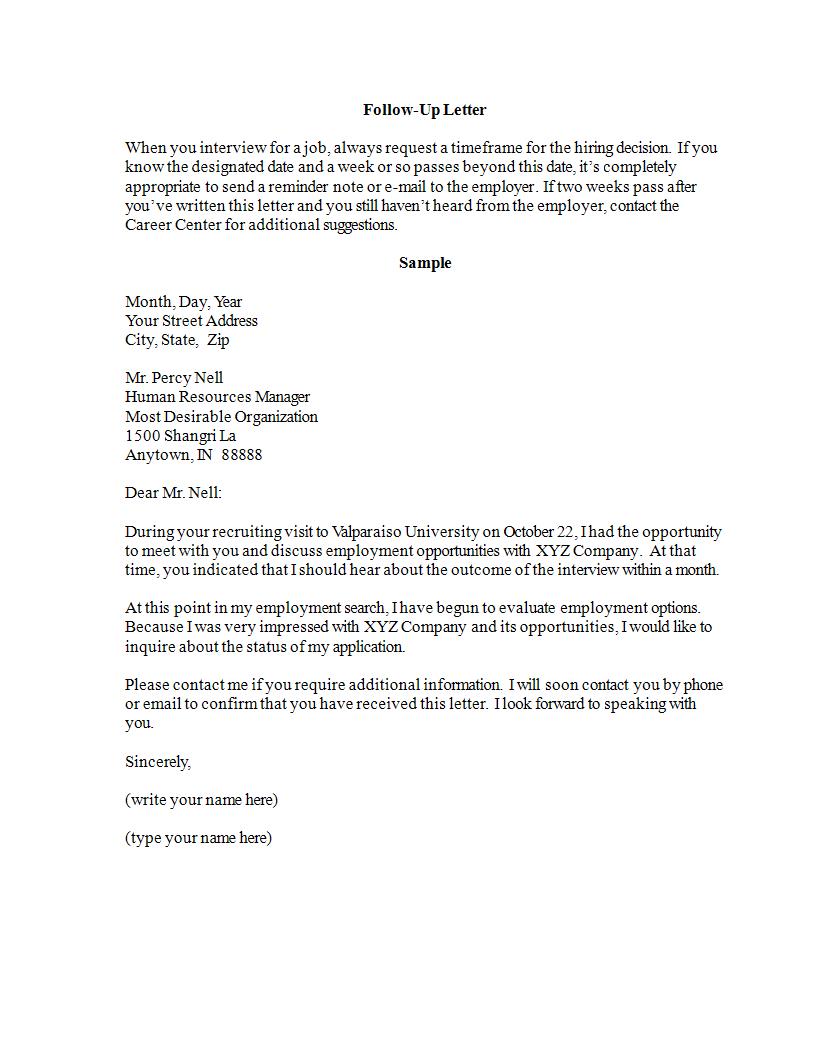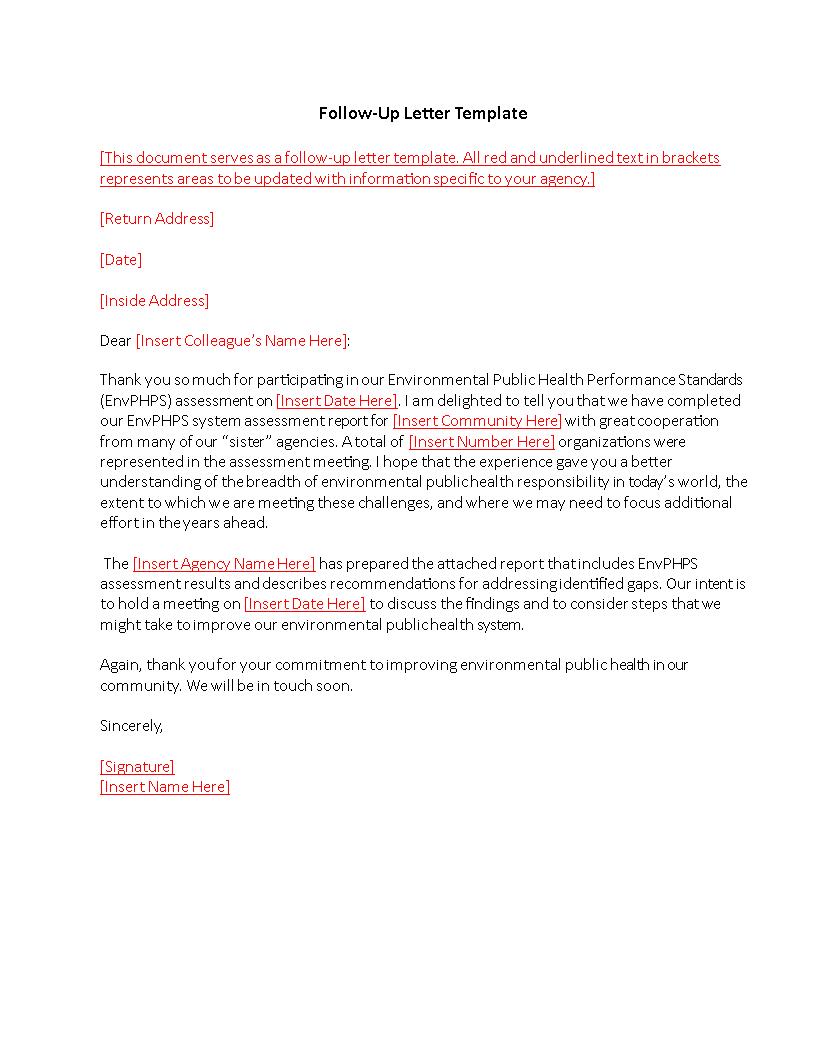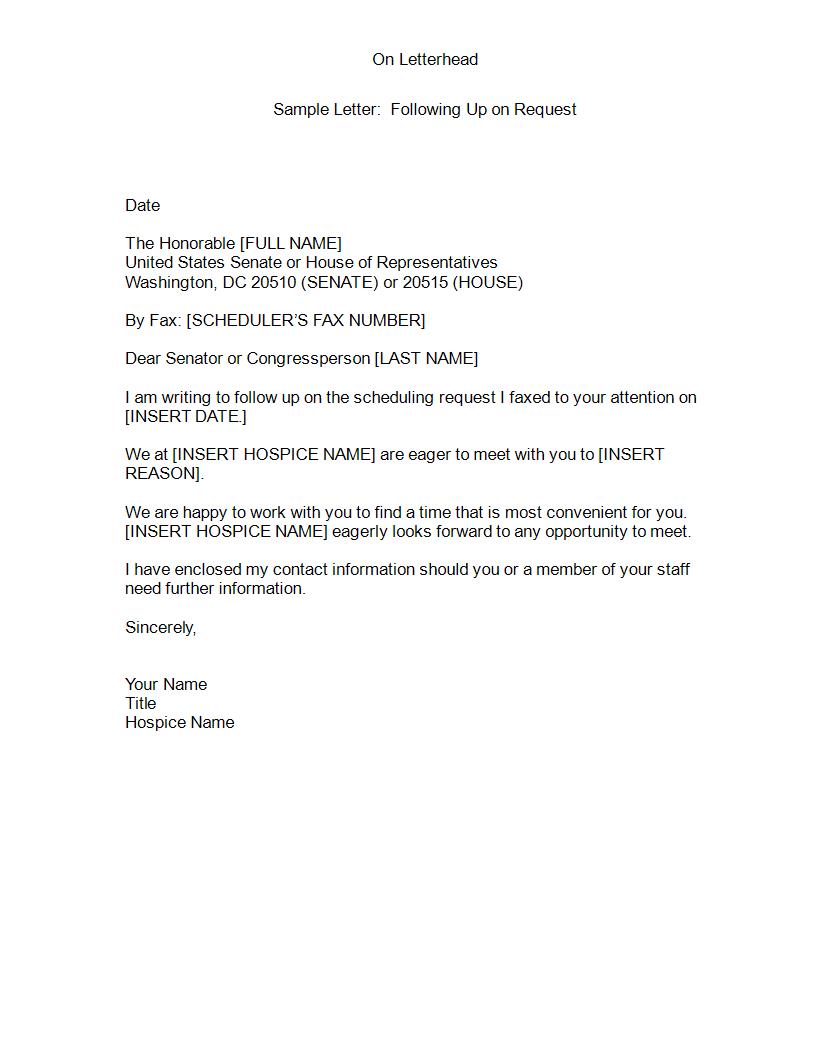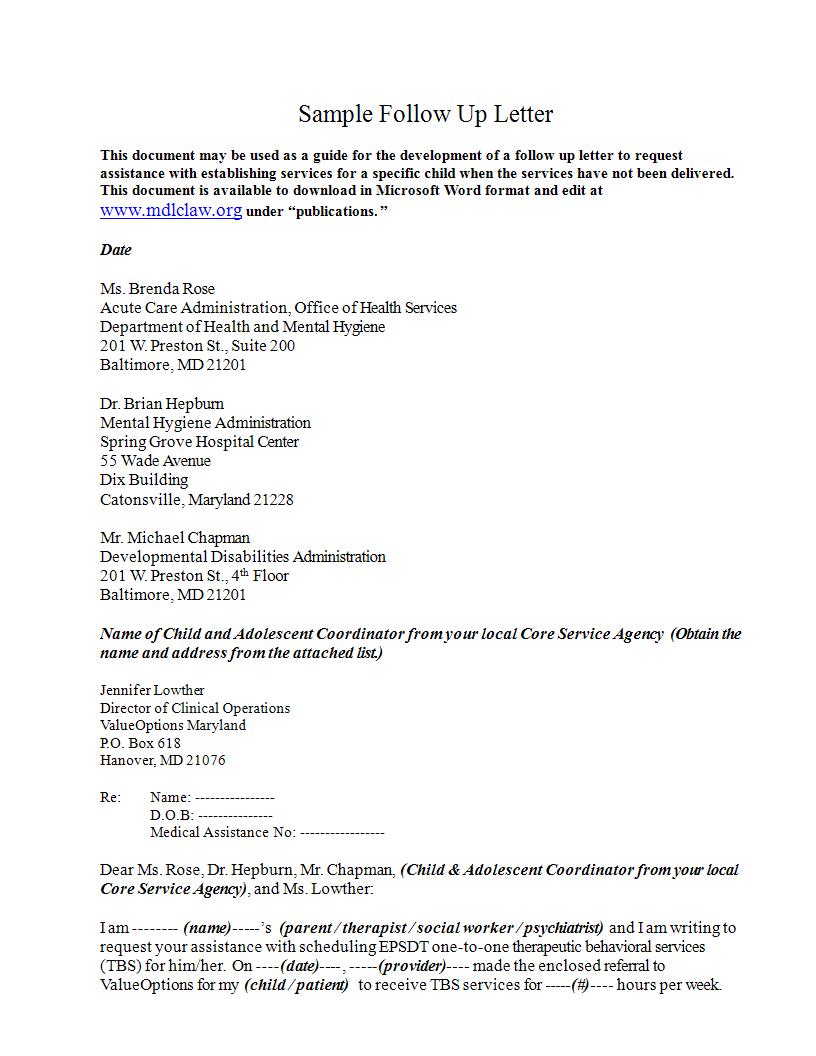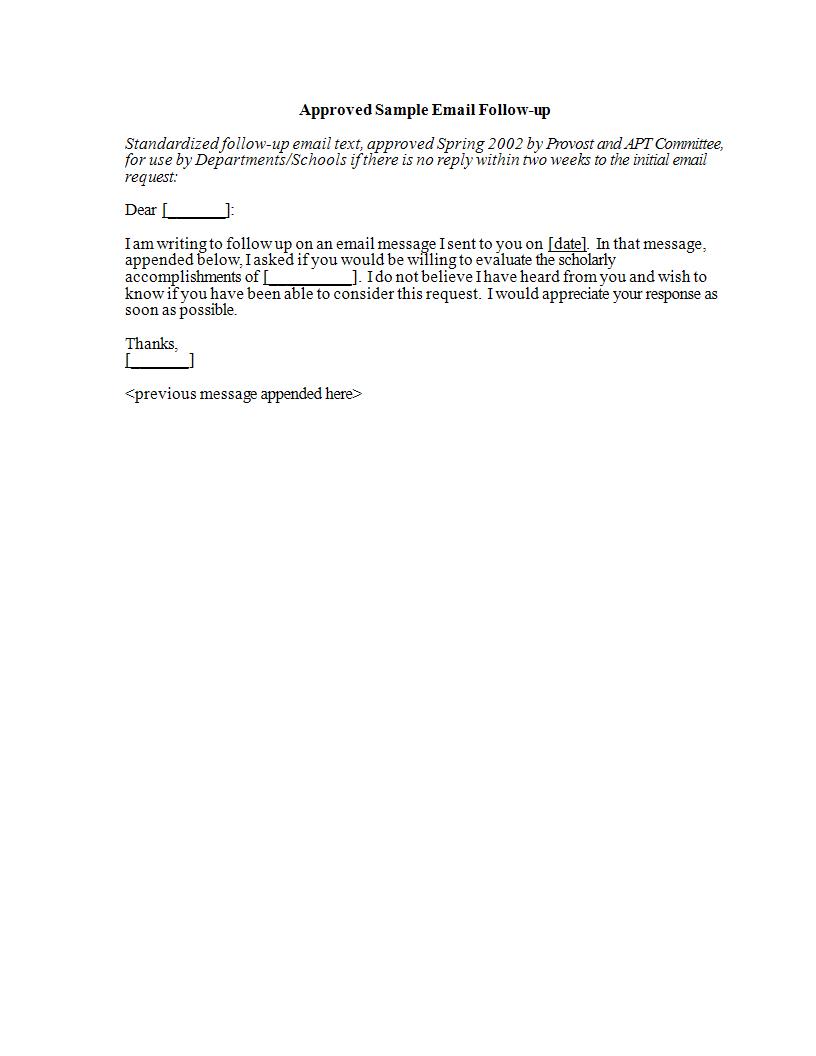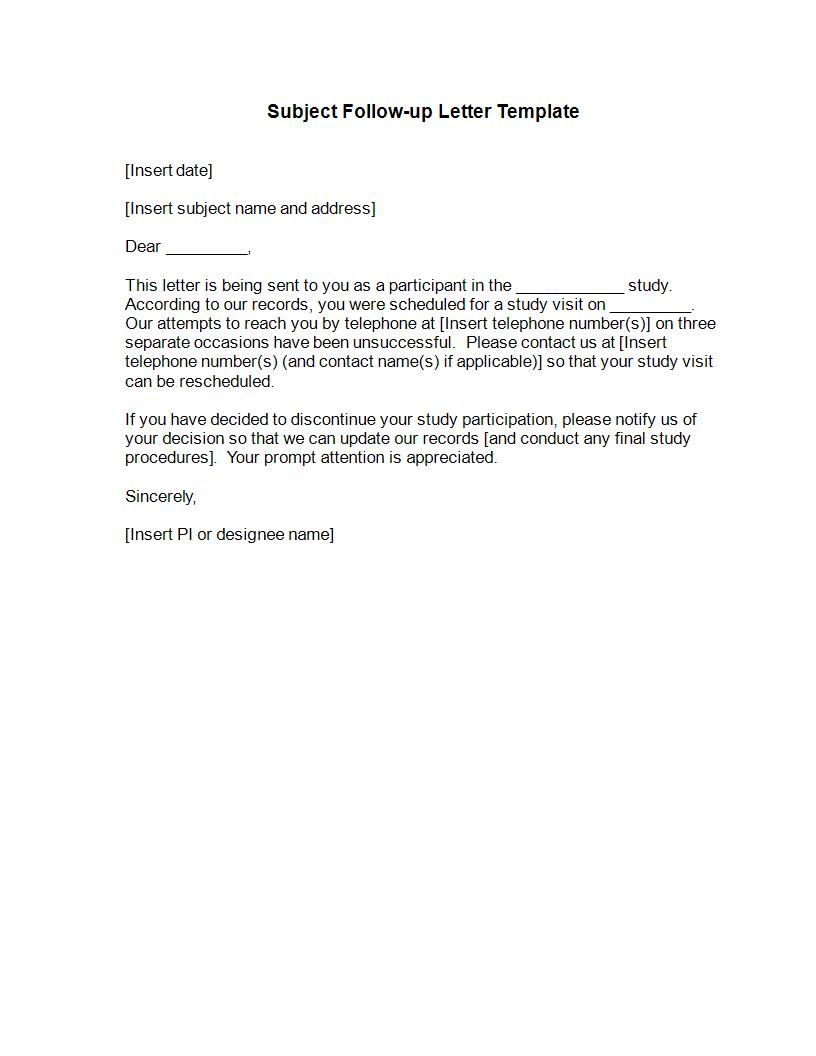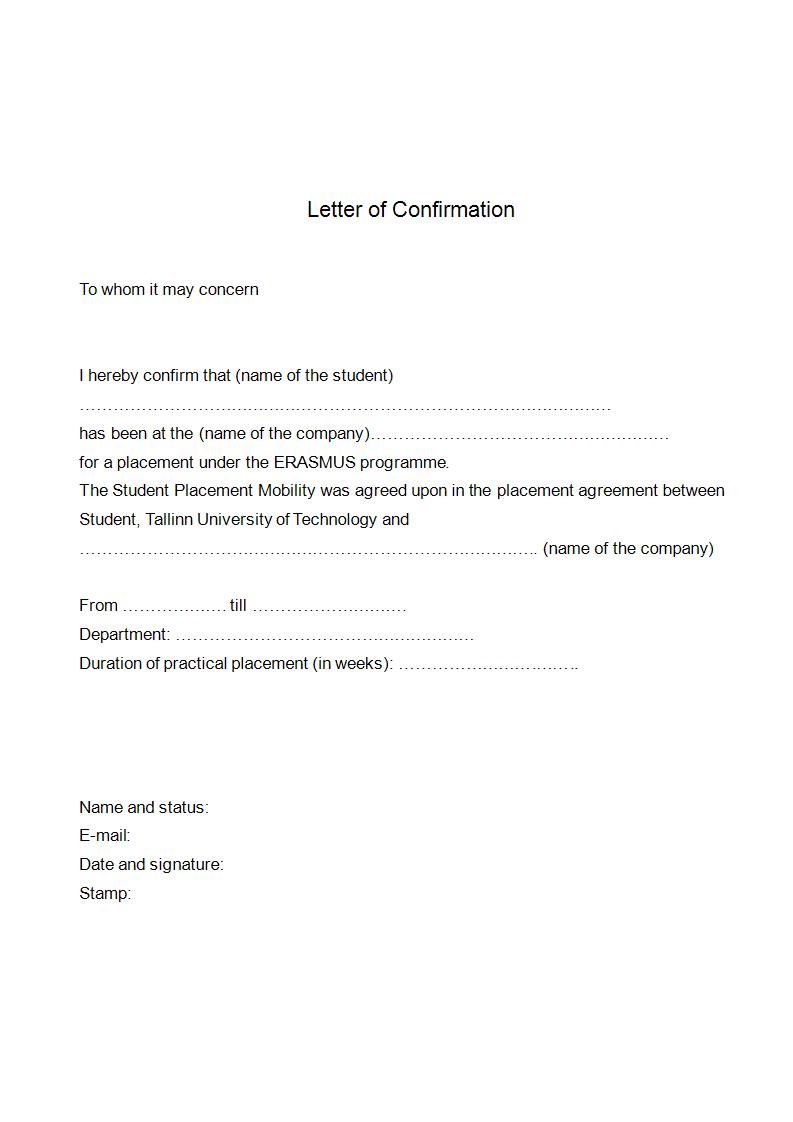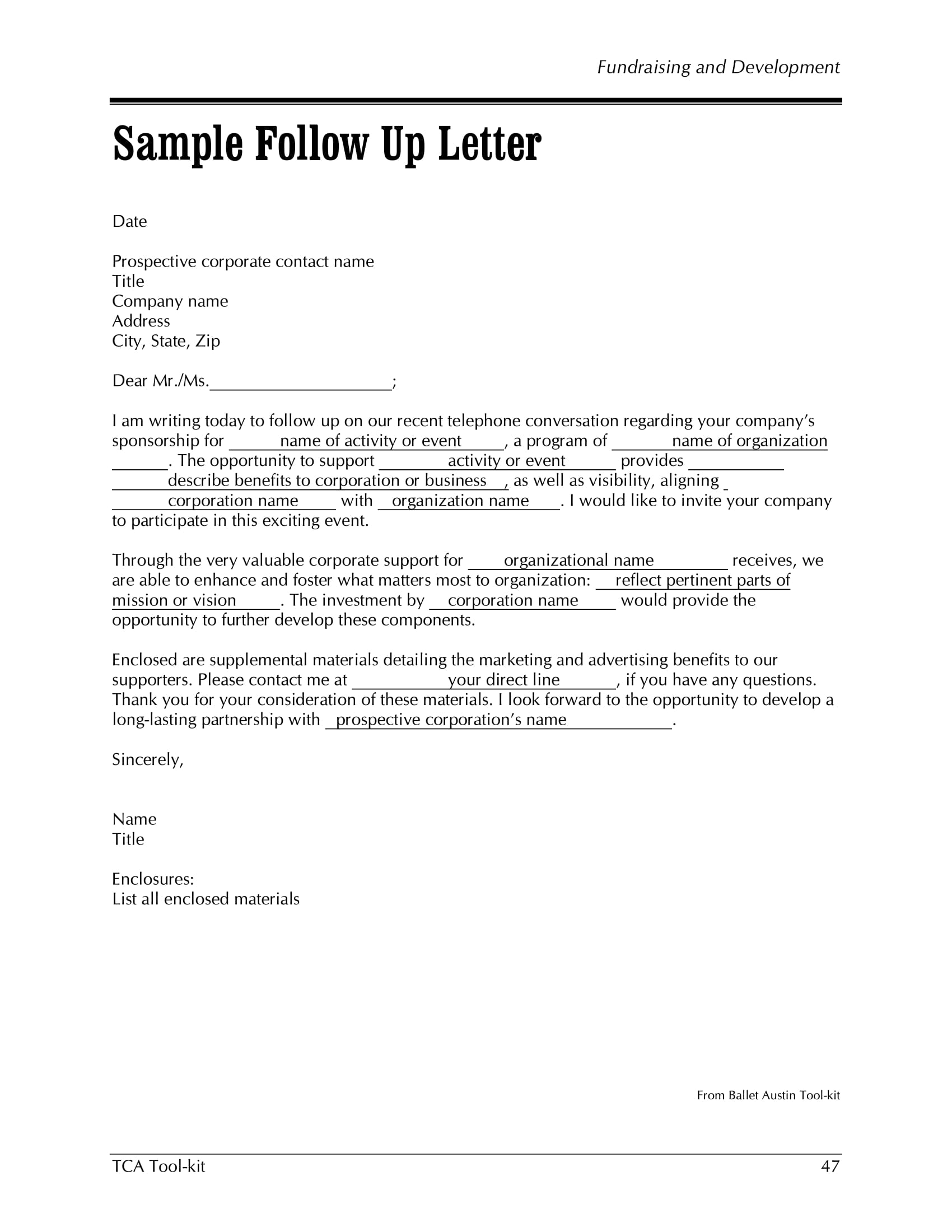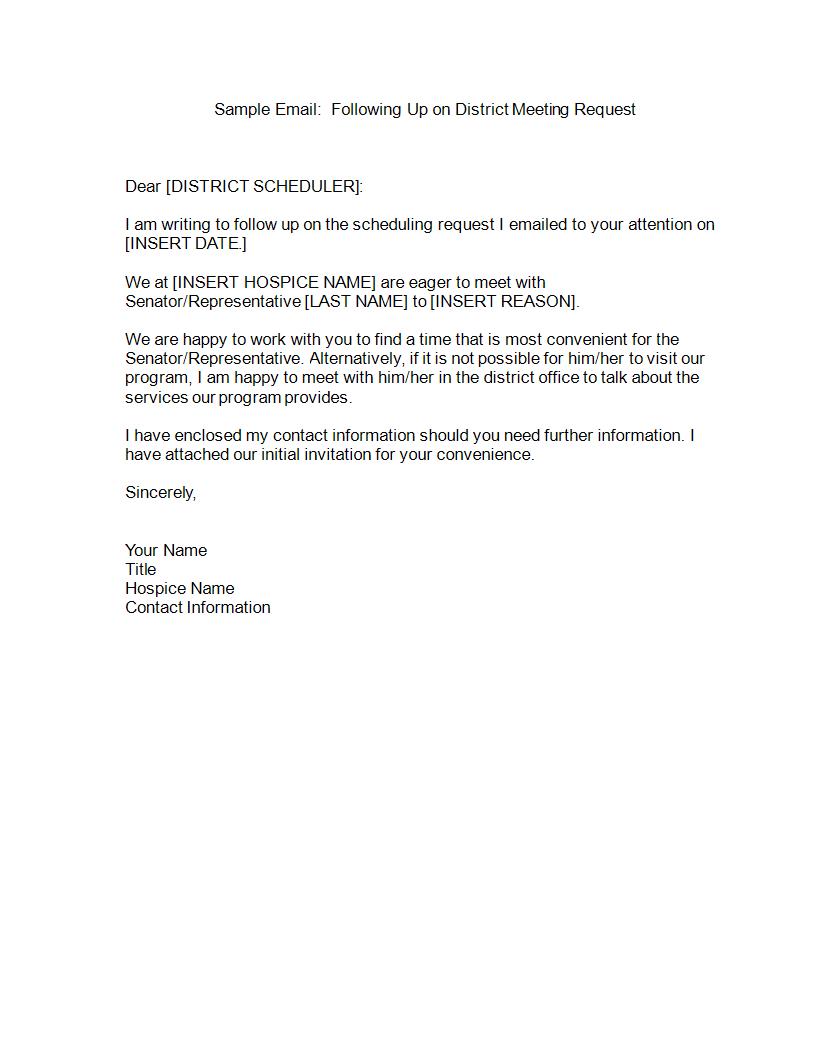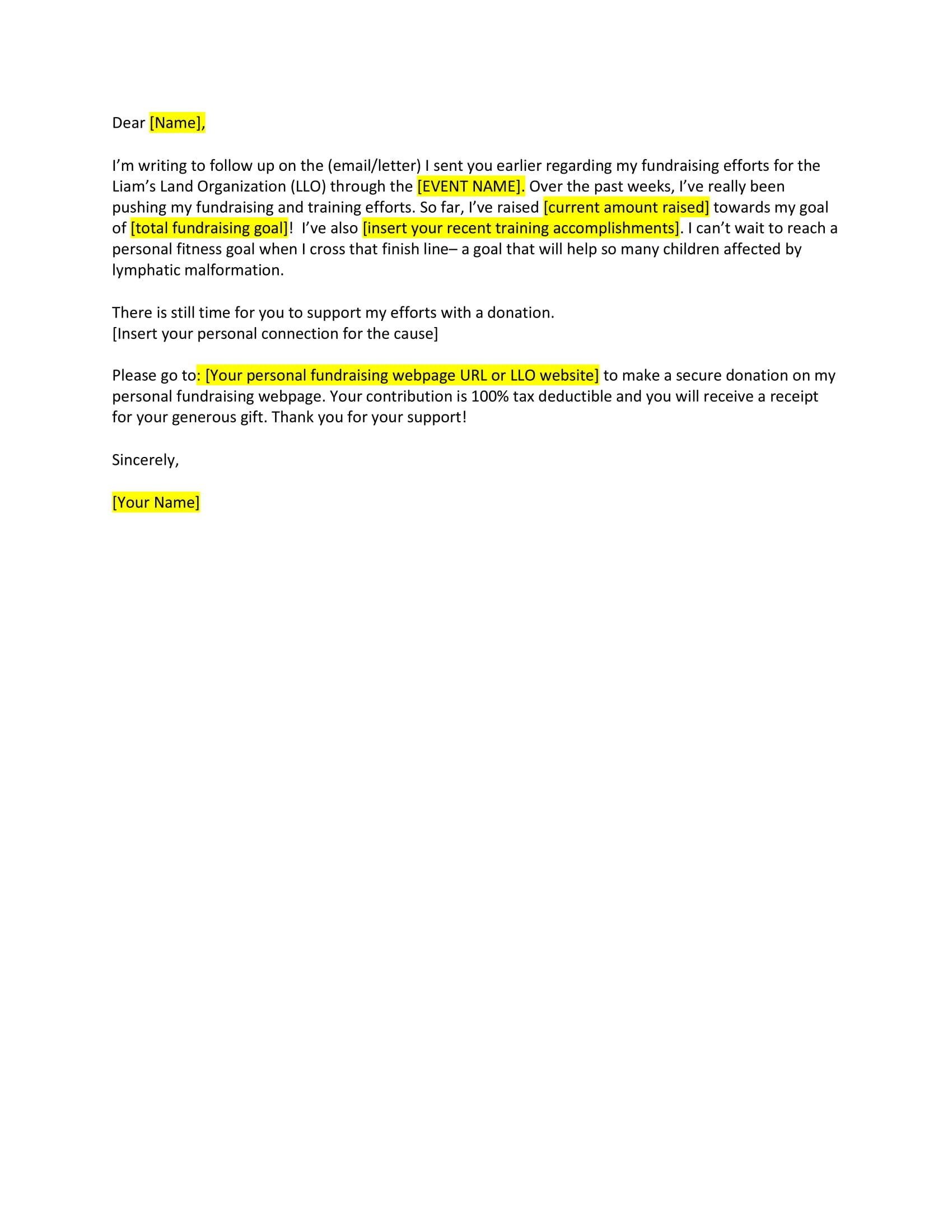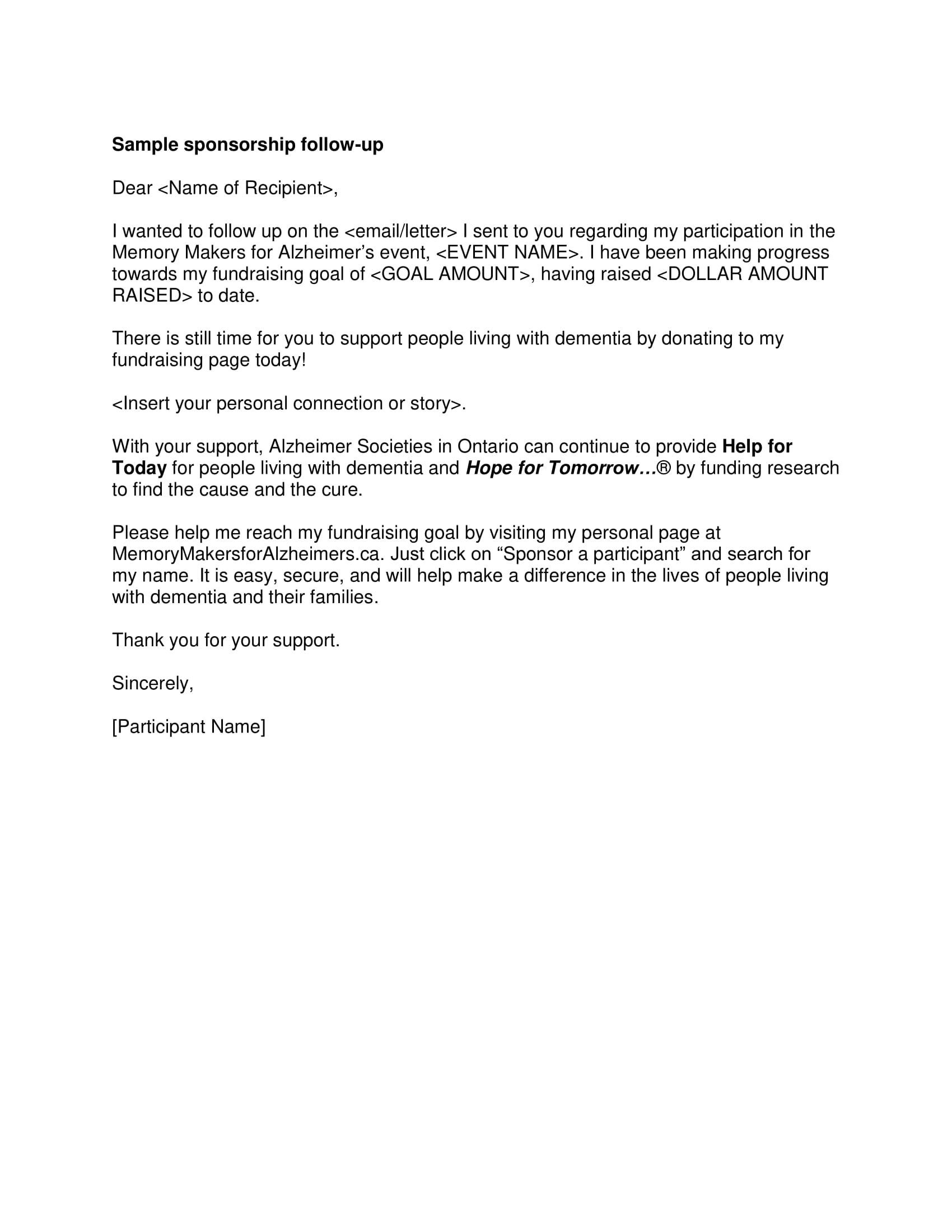33+ Follow-Up Letters Examples to Download
When people expect to hear from you or you expect to hear from them, you will have to find a way to communicate with them without sounding needy and demanding. If people expect to hear from you, it’s quite rude if you don’t even at least try to get in touch, or if you were expecting to hear form other people and you don’t find a way to reach out, they might interpret it as you being uninterested. No matter the situation, there is always a negative to not trying to reach out and communicate especially when dealing with things business-related.
After you have been interviewed for a job, one way of expressing your interest and determination to be part of a company is through sending in a follow-up letter. Your follow-up letter will be your method of communication to your potential employer; you can use the letter to follow-up or ask for the status of your entire application. By definition, follow-up means “an action or thing that serves to increase the effectiveness of a previous one, as a second or subsequent letter, phone call, or visit.” That in itself explains that a follow-up letter helps the effectiveness of a previous action.
Aside from that, a follow-up letter can also be used to basically respond to any communication that was sent to you. You can send a follow-up letter as a way of thanking a person, accepting or declining an offer and/or invitation, or asking for the status for payment or any type of transaction. Simply put, a follow-up letter is one way of strengthening the network or relationship you have recently established with other people. Therefore, a follow-up letter is essential in communicating your purpose, establishing interest, strengthening relationships, and most of the time, a courteous way of communicating and expressing yourself and your purpose to your recipient.
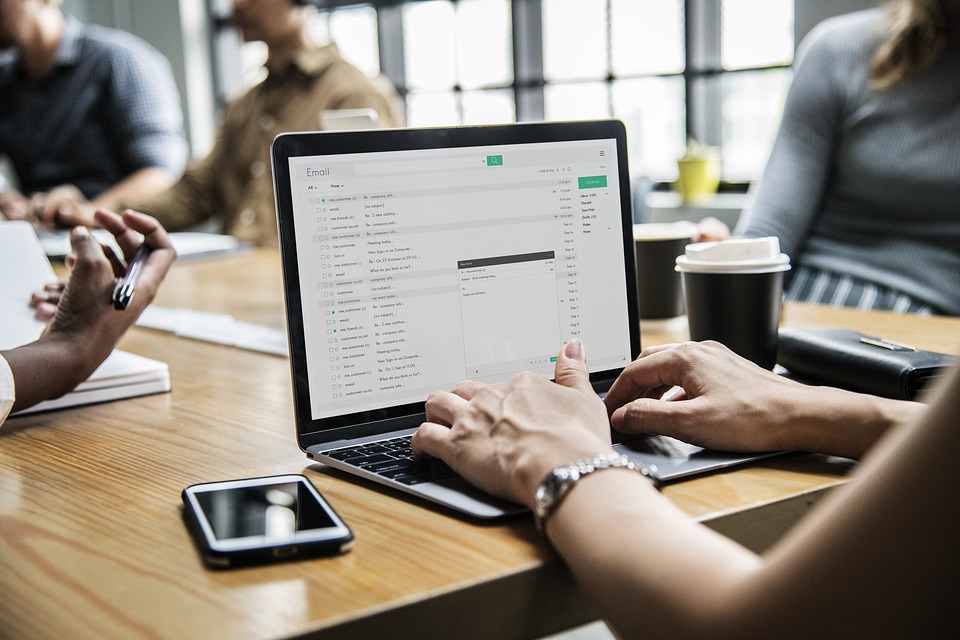
Reasons in Sending Follow-Up Letters
Imagine being the HR of a company where you handle not only the hiring and firing of employees but also maintaining and enhancing the company’s human resource as a whole which includes planning, implementing, and evaluating employee relations and enforcing human resource policies, programs, and practices. Therefore, there is a big chance of you forgetting all the other aspects of your job especially when you have other significant things on your plate, and if the applicant is not active in asking about his/her application status you might forget about it.
With that case in mind, why should you as an applicant send a follow-up letter to the company you are applying for? Listed below are some of the reasons why it is important why sending a follow-up letter is as important as sending your application letter:
1. Shows your interest for the position
With the tens or hundreds of applicants the interviewer has interviewed with the same enthusiasm as you, it can be a difficult to decide who gets to proceed to the next step of the application process. Therefore, it all comes down to who does a little extra in order to boost their chances of getting hired. As mentioned earlier, a follow-up letter can help you translate and convey your interest for the position or job offer.
Aside from the enthusiasm you have displayed during your interview, a follow-up letter will let you express your interest and willingness to take the responsibility that the position entails through the words you use to express it. It is an effective method of communication that can help you still express your passion days or weeks after the interview. This will then encourage your future employer to take further interest and may be even give a chance for the position you are applying for.
2. Refreshes the interviewer’s mind
Aside from showing your interest, a follow-up letter is also an effective tool you can use to remind the interviewer about you. There is always a tendency for the interviewer to forget about you and what makes you special since he/she has interviewed a handful of applicants with the same credentials and qualifications as you. Even though you’re confident that you have made a good first impression, you can never be too sure; there is still a huge chance of having you mixed up or mistaken to be someone else.
Thus, it is important to that you remind and refresh the interviewer’s memory of what you think he/she remembers from the interview. The follow-up letter can help you remind the interviewer of the memorable things you have discussed in your interview and it can also re-spark his/her interest in you as an applicant for the vacant position.
Payment Follow up Letter Template
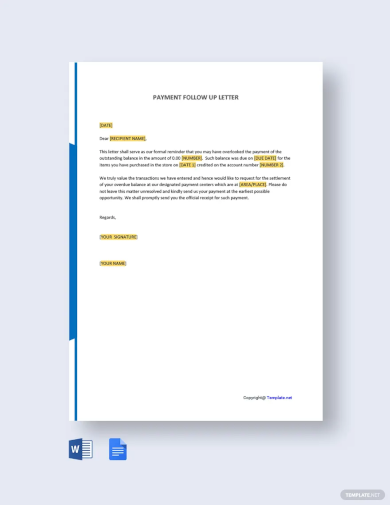
Restaurant Follow Up Thank You Letter Template
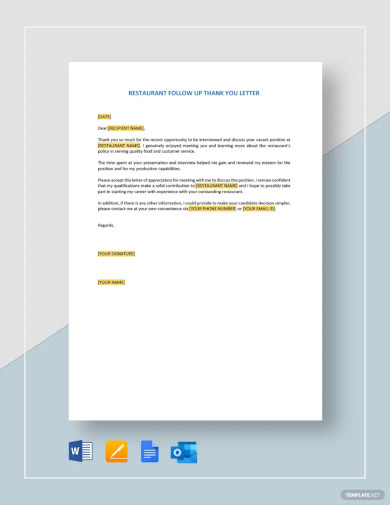
Collection Follow-Up on Release of Pending Order Template
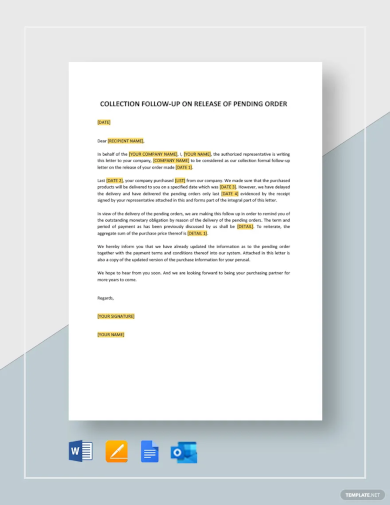
Job Application Follow-Up Letter Template
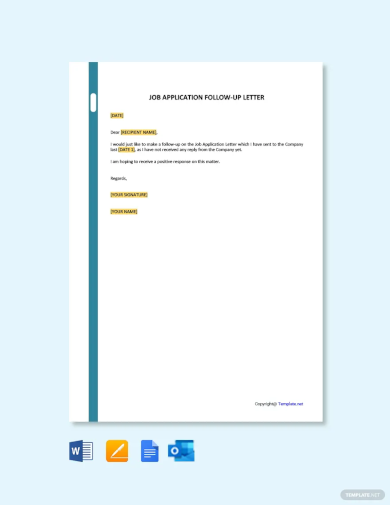
Follow Up Thank You Letter Template
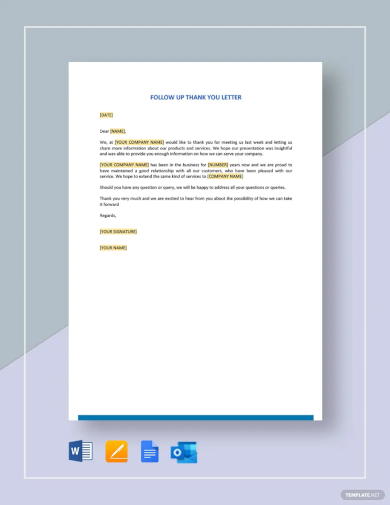
Follow Up Marketing Letter Template
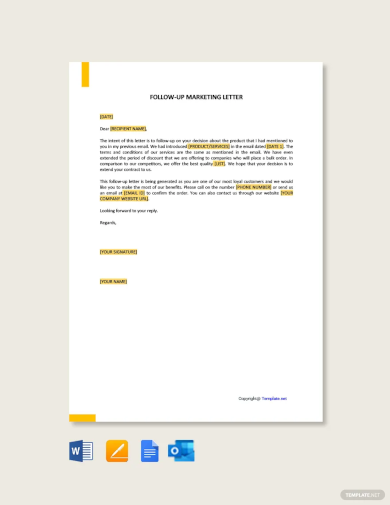
Follow-Up Letter Template
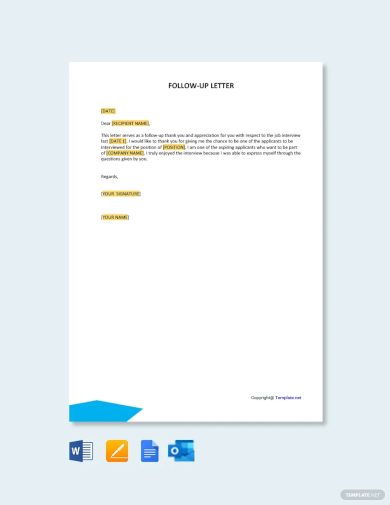
Free Business Follow Up Letter Template
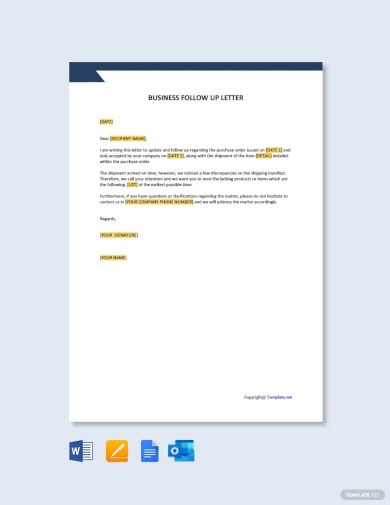
Follow-Up Letter Format Example
Additional Information Follow-Up Letter Example
Meeting Follow-Up Letter Example
Thank You/Follow-Up Letter Example
Job Application Follow-up Letter Examples
Job Interview Thank You Follow-Up Letter Example
3. Expresses your gratitude for the interview
With your employment on the line, you have to realize that you have to show respect and courtesy. The time and effort the interviewer has spent in order to interview you should not be neglected. There will always be other applicants that are more qualified and equipped than you, but still they have taken a chance that you prove your compatibility and capability to hold the responsibilities of the position.
It is only right that you extend some type of expression of gratitude even after the interview. The follow-up letter offers you that kind of opportunity. Through the careful selection of words and sincerity, not only will you be able to ask for the status of your application, you can also relay your personal thank to him/her and/or for the whole company. Even if the purpose of your follow-up letter is to decline a job offer, you can use the letter as the chance to thank the employer for taking and giving you a chance regardless declining the said offer.
4. Increases chances of strengthening cooperation
The initial interview has helped you open up about job-related topics and in return you have begun to sharing views on the productiveness of the company. And although you have discussed your possible contribution to the company, add additional ideas on how to help the company grow.
Through your follow-up letter you can try to confirm the irreplaceability of your candidacy by offering some future original and innovative projects that you think the company will be interested in. The plans and ideas you offer should be relevant to the goals and objectives of the company and should also let you demonstrate your problem-solving skills. Enthusiasm and innovation to contribute to the company’s success will give a higher chance of getting the job.
5. Gives an opportunity to address important undisclosed information
Follow-Up Letter Example
Interview Follow-Up Thank You Letter Example
Follow-Up Job Acceptance Letter Example
Types of Follow-Up Letters
You may think that a follow-up letter only comes in one form or type, but you are mistaken. Since the letter is more flexible, there is quite a need for different types that accommodate such needs. Although commonly used for job application, a follow-up letter can still be used outside of the said premise if you tailor the letter to achieve the objective you have set, for example through varying the tone, language, and words you use in the letter. Thus, a few types of these follow-up letters are used for a specific purpose. Here is a list of some of the different types of a follow-up letter:
1. Thank-You Letters
Thank-you letters are a professional sign of courtesy and a way for establishing communication and goodwill relationship with a potential employer or contact. This type of follow-up letter is the most important and useful, however, it is the least used. A thank-you letter will provide you the chance to thank the interviewer without looking and sounding like a suck-up. If a potential employer invited you for an employment interview or any sort of meeting that people have invested time to talk and exchange information with, you should send a thank-you letter within 24 hours after the meeting. Aside from thanking them for their time investment, it also allows you to provide additional information or clarify a point that was discussed during the meeting.
2. Letters of Acknowledgment
A letter of acknowledgment is sent to accept or confirm an invitation or offer. This letter is not only limited to acknowledging an invitation for a job interview or acknowledging a job offer, it can also be used to as a way of acknowledging even personal invitations and offers. Aside from that, the letter can also be used to add essential and relevant information about the invitation or offer. For example, when you have been invited to take a personal tour of a company’s production plan, in your acknowledgment letter, you can ask for rescheduling if the date has been sent or set the date if it has not been set yet. This letter, just like any, should be sent on time in order to make a good impression.
3. Employment Offer Acknowledgment Letters
As the name would suggest, this is mainly used for employment purposes. After an interview when the employer has decided and has chosen to hire you, you will be sent an offer letter stating the company’s offer for the position along with the responsibilities and compensation that comes along with the job. And as a sign of professionalism and courtesy, you should send a reply in the form of an employment offer acknowledgment where you state your feelings toward the offer as well as you gratitude for taking a chance on you. You also need to restate the position and the salary as well as the exact date you will notify the employer of your decision.
4. Acceptance Letters
Just like an acknowledgment letter, your acceptance letter is intended to positively respond to an invitation or an offer. Most commonly, an acceptance letter is used by a candidate to respond to a job offer; when he/she has decided to accept the offer, he/she sends in an acceptance letter to indicate and restate the position offered, salary, and starting date, if already established. In addition, the letter can also be used to inform the employer of your travel plans and arrival date if there is a need to relocate. An acceptance letter is also commonly used to accept an applicant into the college/university or program he/she is applying to; it states the school or calendar year when the candidate starts his/her academic life with the college or university as well as the course or program he/she will be studying.
Follow-Up Refusal Letter Example
Acceptance Follow-Up Letter Example
Withdrawal Follow-Up Letter Example
Example of Follow-Up Letter for No Response
Follow-Up Letter on Demand Example
5. Letters of Refusal
A letter or refusal is written when you have to decline an offer made by an employer or anyone who has made and offer or invitation to you. Although you wanted the job or invitation, if there is conflict in interest, schedule, or any other matters, it is always respectful to inform the other party of your decision to decline. In the letter, you can express your gratitude for the invitation or offer along with a careful explanation on what made you refuse the offer or invitation. In the corporate world, a lot of applicants have been blacklisted because they don’t inform employers of their decision of not showing up. Letters such as this can help keep a positive relationship with the individual or company you may have to correspond to in the future.
6. Letters Seeking Additional Information
Even if you have had a chance to personally talk to your potential employer through an interview, there will be information or things that you have forgotten to ask or your interviewer has forgotten to discuss with you. And those information that have been left out are really essential and relevant to the topic of the conversation, therefore, you will have to ask for addition information. You can send a letter with the goal of seeking additional information more appropriately when the employer has made an offer to you. Make sure you indicate your acceptance of the offer following up with some topics subject to clarification.
7. Withdrawal Letters
Although you have high regard and interest about something, there will be times when you have to change or make another decision. It is the same case with employment, once you have accepted an offer made by a company, however, due to certain circumstances you have to withdraw you previous decision. The letter is used to inform the employer that you would want your application to be withdrawn from consideration. The letter will let you expound on your decision as well as expressing how sorry you are for causing such hassle. Although you are to expound your reason, make sure to remain contrite and cordial so that a positive relationship is still maintained.
8. Follow-Up Letters after a Turndown
With the tens and hundreds of applicant for just a single vacant position, there is a big chance that another candidate is more compatible or better suited for the position. However, although the employer has chosen to hire someone else, it is professional to follow up and remind the employer of your continued high interest for the said position. This letter will be one of your best tool to establish a positive relationship with the company even if you didn’t get the job. Aside from that, you can use the letter to ask to be considered for any future professional opportunities should one arise.
Employment Interview Follow-Up Letter Example
Follow-Up Letter Template Example
Schedule Request Follow-Up Letter Example
Assistance Request Follow-Up Letter Example
Guidelines for Writing Follow-Up Letters
Although you have the best interest in sending in a follow-up letter, the receiving end might interpret it as you being annoying and pushy. You have to be careful when writing a follow-up letter so as you can maintain the good first impression you have made during an interview or first meeting. You need to be able to convey your interest without sounding too needy and desperate; professionalism must be maintained at all times. Here are some points that you can use a guide when writing a follow-up letter:
-
State your name and mention the position for which you sent in your application.
-
Ask politely regarding the status of the application, or whether the company contact all the candidates regardless of the results. In addition, you could also inquire about the next step of the hiring process.
-
The letter provides you an opportunity to convey what you want to; if there have been changes in your career or personal decisions, or if you want to inform them that you have received the examination results during this time, or if you want to add some more information.
-
Mention your willingness to answer some questions should they need some more information.
-
Reiterate and re-emphasize that you are highly interested in the job.
-
Keep it short and direct to the point.
- If there has been no word from the employer after the first follow-up letter, you might want to consider giving up. But if you know you are a strong contender for the position, there is no harm in sending another after two weeks, but you should immediately draw the line after that.
- It is essential for you to express your enthusiasm for the job. Your goal should be to convince the employer that you are a perfect candidate for the position.
- Politely address a few issues that you feel were left unanswered.
- You can try to personalize the letter to a certain letter like using a personal letterhead or an unique format if you really want to stand out among other candidates.
- Remind the employer of your expertise and restate your skills so that you may look perfect for the particular job position.
- Subtly highlight the points that determine your success and past achievements. However, make sure you preserve your professional image without sounding arrogant.
Follow-Up Email Example
Simple Follow-Up Letter Template Example
Confirmation Follow-Up Letter Example
Event Invitation Follow-Up Letter Example
Email Invitation Follow-Up Letter Example
How to Write a Follow-Up Letter
You have to remember that your follow-up letter can affect your chances of getting a callback or be considered for the job position. Therefore, you need to be able write an effective follow-up letter that can clearly and coherently express your purpose. Here is a short guide on how you can write an effective follow-up letter regardless of the purpose:
1. Determine your objective
Before you even write the first draft of your letter, you should be able to determine why you have to write the letter. Why is there a need for you to write a follow-up letter? What do you want to address in your letter? You have to have a clear objective before you begin writing so that you can focus your energy on strategizing how you can carefully but clearly achieve your objective.
2. Follow proper format
A follow-up letter should be treated like that of every other professional letter. It should follow the proper format and must contain all the necessary inclusions such as a letterhead, if available, the return address, date, inside address, salutation or formal greeting, complimentary close, and signature line. Remember that the main purpose why you have written a follow-up letter is to discuss professional matters, therefore, professionalism must be conveyed and maintained all throughout. Format can be one of the factors that can help encourage the recipient to take the time to read it since proper format can be interpreted as being keen on details that can be of use for the job.
3. Introduce yourself
After determining the objective and following the proper format for the letter, you should introduce yourself on the first few sentences of the letter. You have to remember that you still don’t have a strong relationship with the recipient as he/she might have only met you on the day of your meeting or interview. Introducing or reintroducing yourself will help refresh the recipient’s memory of you especially when you only share a few short encounters with them. You can use a common opening line for a smooth flow of your sentences such as “We met last week at… I was inspired after you spoke at… Last time we spoke…”
4. Clearly mention the purpose of the letter
Immediately after you complete the necessary contents of the letter, determine or mention the purpose why you have written and sent the letter. You need to be able to clearly explain the main goal you want to achieve with the letter. Do you want to clarify any piece of information? Do you want to ask regarding the status of your application? Or do you want to acknowledge or accept an invitation or offer? The objective or goal of your letter should be directly stated on the first part of your letter so that the reader can immediately recall why you have gotten in contact with them. As you may know, one of the reasons why you write a follow-up letter is to remind the interviewer for your application.
5. Restate your skills and possible contribution to the company
In your letter, you need to be able to emphasize the skills you have included in your resume and you have mentioned during the interview. You need to remind the employer that you have the perfect skills and qualification they are looking for. However, you only need to emphasize on the skills that are relevant to the job position or job posting and what you think is your edge over all the other applicants. In addition, if there are ideas that you think is gonna help the company, you can offer it in the letter. That can be interpreted as you being invested and truly interested in the position and that you are willing to offer your expertise to help the company achieve its goals.
6. Professionally close the letter
After you have stated your purpose and restated your qualifications, you have to respectfully end the letter. You have to be able to keep the positive cordial relationship you have with the employer. Aside from that, through closing your letter you can mention how you would want to keep in touch regarding the subject. You can use lines that relay your interest and determination to be part of the company. In addition to that, you also have to use the appropriate complimentary close to be followed by your signature line consisting of your name and signature.
Fundraising Follow-Up Letter Example
Sponsorship Follow-Up Letter Example
Conclusion
Regardless of the purpose you have in writing a follow-up letter, you have to remember that the ultimate goal should be to keep a professional, cordial, and respectful relationship with your potential employer. You must be able to clearly express your reason for writing so that the recipient can easily be reminded and can respond efficiently. Remember to keep the letter short and direct. If you want to ask or clarify something immediately, dive into it; likewise with other purposes. We hope that you were able to learn about follow-up letters with this guide and that you find the examples given useful.


